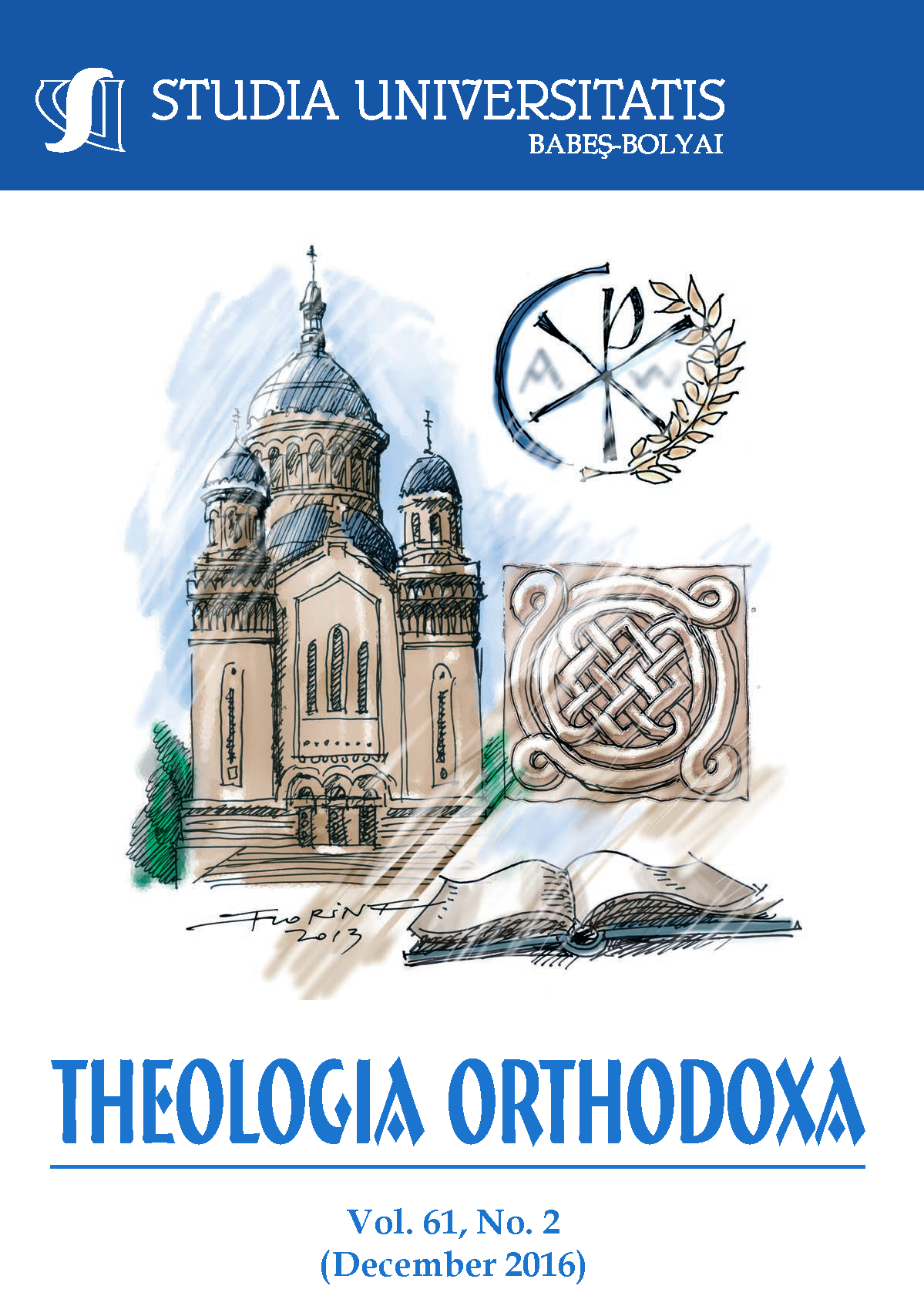DIRECT COMMUNICATION AND COMMUNICATION THROUGH SOCIAL NETWORKS IN THE 21ST CENTURY. AN ATTEMPT TO RECONCILIATE THE RELATIONSHIP BETWEEN THEM
Keywords:
communication, communion, relationship, social networks, unicityAbstract
The person is ontologically a communicational person, a relational being. Through communication we do not communicate just a message formed of words, but most of the times, beyond words we share a part of who we are and we receive a part of what the other is. Communication has as a final target to achieve communion, it is meant to lead us to the other’s inner self, to advance from me and you to the opening of us. Social networks, as the most used means of communication today, may enhance the entire process, but they may also limit it. In order to explore the facilities and excesses that pertains the use of social networks, we have used a questionnaire specifically designed for this aim, and the results of this research are presented in the last part of the present study.
References
Abdulahi, Aida, Samadi Behrang, and Gharleghi Behrooz. “A Study on the Negative Effects of Social Networking Sites Such as Facebook among Asia Pacific University Scholars in Malaysia.” International Journal of Business and Social Science 5, no. 10 (2014): 133-145.
Al-Sharqi, L., K. Hashim, and I. Kutbi. “Perceptions of social media impact on students social behavior: A comparison between Arts and Science students.” International Journal of Education and Social Science 2, no. 4 (2015): 122-131.
Biswajit, Das, Jyoti Shankar Sahoo. “Social networking sites – A critical analysis of its impact on personal and social life.” International Journal of Business and Social Science 2, no. 14 (2011): 222-228.
Brignall III, Wells, Thomas, and Thomas Van Valey. “The impact of internet communications on social interaction.” Sociological Spectrum 25, no. 3 (2005): 335-348.
Buber, Martin, Eu și tu. Trans. Ștefan Augustin Doinaș. București: Humanitas, 1992.
Collin, Philippa, Kitty Rahilly, Ingrid Richardson, and Amanda Third. “The Benefits of Social Networking Services A literature review.” Cooperative Research Centre for Young People, Technology and Wellbeing, (2011).
Coniaris, Anthony. Taina persoanei: calea către Dumnezeu. Ediția a doua, trans. Diana Potlog. București: Sofia, 2012.
Cristescu, Vasile. Persoană și comuniune în creștinism și filosofie. Iași: Tehnopress, 2008.
Cucoș, Constantin. “Educație și integrare: Tinerii, față în față cu noile tehnologii,” Lumina, November 18, 2007. Accesed 15.06.2016, 15.06.2016, http://ziarullumina.ro/educatie-si-integrare-tinerii-fata-in-fata-cu-noile-tehnologii-63463.html.
Drago, Emily. “The effect of technology on face-to-face communication.” The Elon Journal of Undergraduate Research in Communications 6, no. 1 (2015): 13-19.
Duggan, M., N. B. Ellison, C. Lampe, A. Lenhart, and M. Madden, “Frequency of Social Media Use,” PewResearchCenter – Internet, Science&Tech, accesed 15.06.2016, http://www.pewinternet.org/2015/01/09/frequency-of-social-media-use-2/ (2014).
Eco, Umberto. Limitele interpretării. Constanța: Pontica, 1996.
El Khouli, Mohamed. “The most important negative aspects of using social networking affecting the family stability in Abu Dhabi-A pilot study.” International Journal of Engineering and Technology 5, no. 1 (2013): 85-90.
Ellison, Nicole. “Future Identities: Changing identities in the UK–the next 10 years.” DR3: Social Media and Identity (2013): 1-23.
Enăchescu, Constantin. “Persoana umană ca mister.” Ortodoxia 1-2 (1992).
Fujimoto K., T. Snidjers, and T. W. Valente. “Popularity breeds contempt: The evolution of reputational dislike relations and friendships in high school.” In Social Networks 48, 100-109.
Hausherr, Irenee. Paternitatea și îndrumarea duhovnicească în Răsăritul creștin. Trans. Mihai Vladimirescu. Sibiu: Deisis, 1999.
Iloaie, Ștefan. Responsabilitatea morală personală și comunitară. Cluj- Napoca: Renașterea, 2009.
Kiesler, Sara, Jane Siegel, and Timothy W. McGuire. “Social Psyhological Aspects of Computer-Mediated Communication.” American Psychological Association, 10 (1984).
Kraioupoulos, Simeon. Te cunoști pe tine însuți? Viața duhovnicească și problemele psihologice. Trans. Cristian Spătărelu. București: Editura Bizantină, 2008.
Marti, J., M. Bolibar, and C. Lozares. “Network Cohesion and social support.” In Social Networks 48, 192-201.
Mehrabian, Albert, and Susan R. Ferris. “Inference of Attitudes from Nonverbal Communication in Two Channels.” Journal of Consulting Psychology 31, no. 3 (1967).
Miron, Dan. “Educația – dimensiune a vieții.” Mitropolia Moldovei și Sucevei, 7-9 (1983): 385-416.
Mounier, Emmanuel. “Introducere familiară la universul personal.” In Filosofia contemporană 1, translated by Nicolae Frigioiu. București: Universitatea București, Catedra de filosofie, 1955.
Nie, Norman H., and D. Sunshine Hillygus. “The impact of Internet use on sociability: Time-diary findings.” It & Society 1, no. 1 (2002), 1-20.
O'Keeffe, Gwenn Schurgin, and Kathleen Clarke-Pearson and Council on Communications and Media. “The Impact of Social Media on Children, Adolescents, and Families.” Pediatrics (2011): 800-804.
Preda, Radu. “Comunicare versus comuniune. Marginalii social-teologice despre Internet.” Tabor no. 10 (2012): 55-70.
Rupnik, Marko Ivan. Cuvinte despre om. Persoana – ființă a Paștelui. Trans. Maria-Cornelia Oros. Sibiu: Deisis, 1997.
Stăniloae, Dumitru. Iubirea creștină. Galați: Editura Porto-Franco, 1993.
Stăniloae, Dumitru. Studii de teologie dogmatică ortodoxă. Craiova: Editura Mitropoliei Olteniei, 1990.
Yannaras, Christos. Persoană și eros. Trans. Zenaida Luca and Mihai Șora. București: Anastasia, 2000.
Downloads
Published
How to Cite
Issue
Section
License
Copyright (c) 2016 Studia Universitatis Babeș-Bolyai Theologia Orthodoxa

This work is licensed under a Creative Commons Attribution-NonCommercial-NoDerivatives 4.0 International License.





 ISSN (print): 1224-0869, ISSN (online): 2065-9474, ISSN-L: 2065-9474
ISSN (print): 1224-0869, ISSN (online): 2065-9474, ISSN-L: 2065-9474